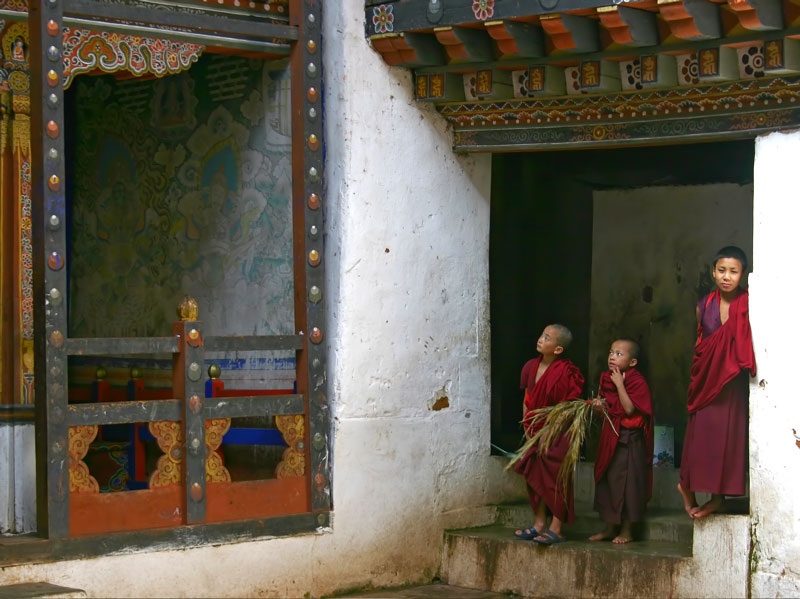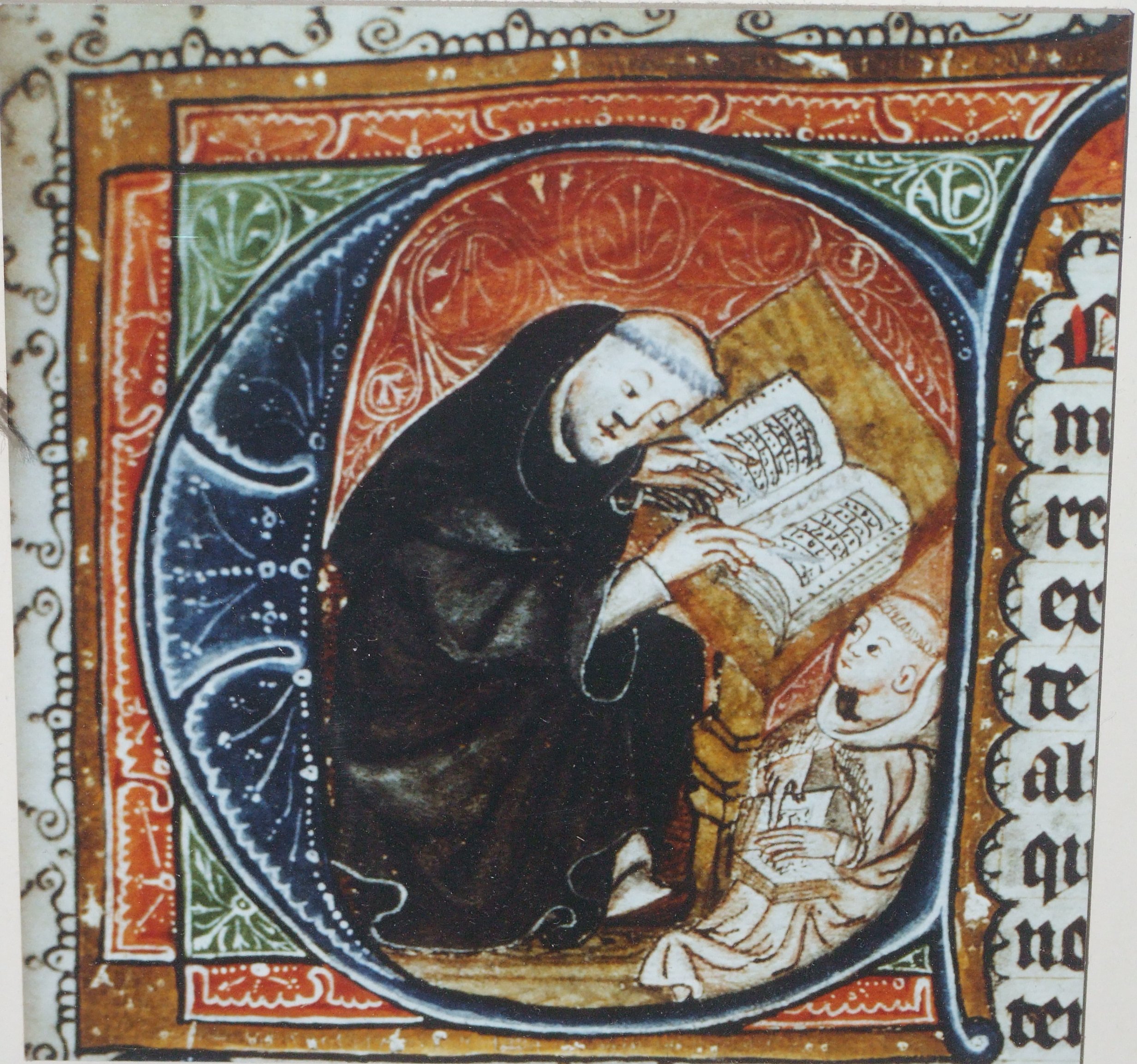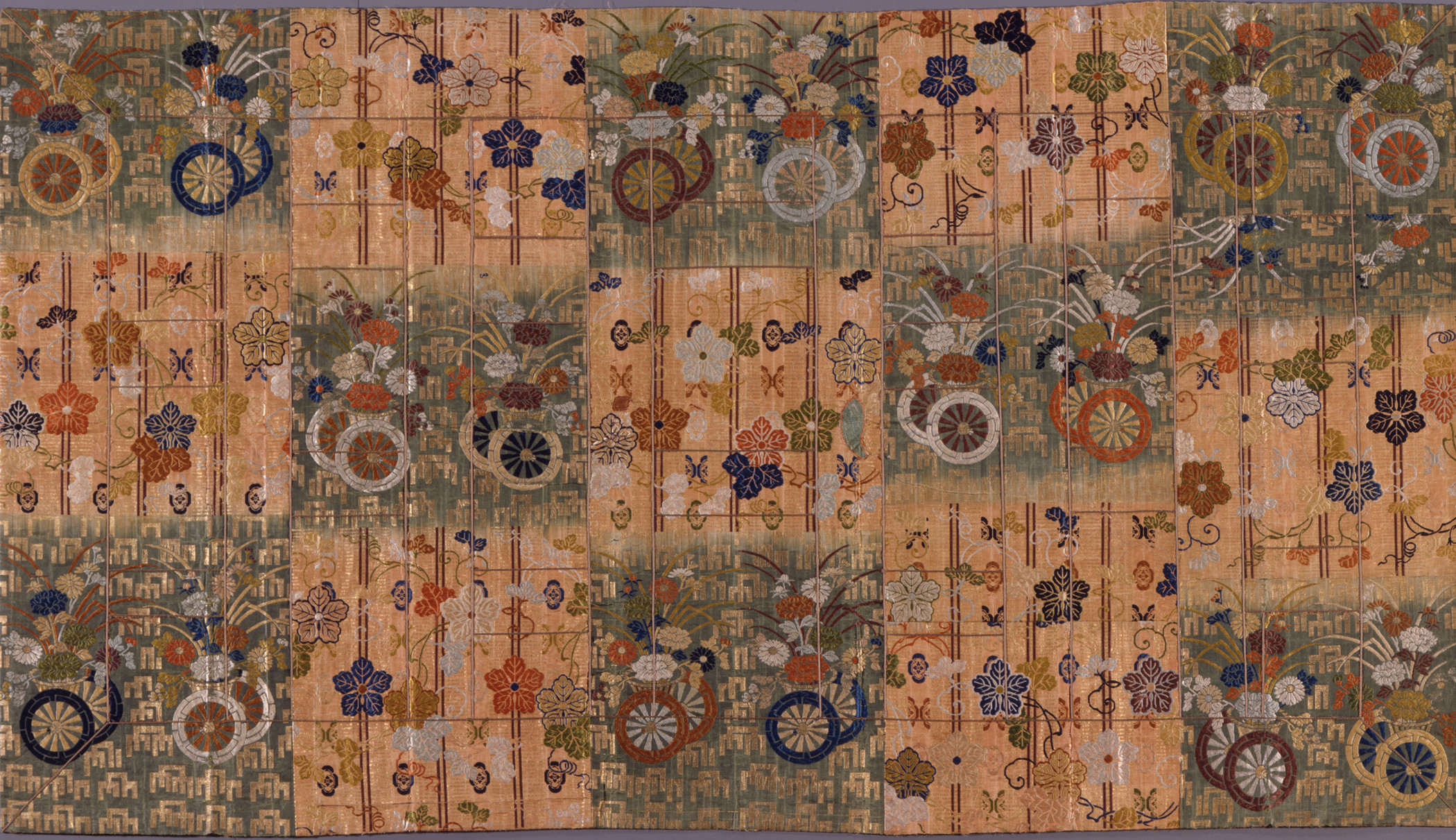|
Novitiate
The novitiate, also called the noviciate, is the period of training and preparation that a Christian ''novice'' (or ''prospective'') monastic, apostolic, or member of a religious order undergoes prior to taking vows in order to discern whether they are called to vowed religious life. It often includes times of intense study, prayer, living in community, studying the vowed life, deepening one's relationship with God, and deepening one's self-awareness. The canonical time of the novitiate is one year; in case of additional length, it must not be extended over two years.CIC, canon 648 In the Eastern Orthodox Church, the novitiate is officially set at three years before one may be tonsured a monk or nun, though this requirement may be waived. The novitiate is in any case a time both for the novice to get to know the community and the community to get to know the novice. The novice should aspire to deepening their relationship to God and discovering the community's charism. The novit ... [...More Info...] [...Related Items...] OR: [Wikipedia] [Google] [Baidu] |
Novice
A novice is a person who has entered a religious order and is under probation, before taking vows. A ''novice'' can also refer to a person (or animal e.g. racehorse) who is entering a profession A profession is a field of work that has been successfully ''professionalized''. It can be defined as a disciplined group of individuals, '' professionals'', who adhere to ethical standards and who hold themselves out as, and are accepted by ... with no prior experience. Religion Buddhism In many Buddhism, Buddhist orders, a man or woman who intends to take ordination must first become a novice, adopting part of the monastic code indicated in the vinaya and studying in preparation for full ordination. The name for this level of ordination varies from one tradition to another. In Pali, the word is samanera, which means 'small monk' or 'boy monk'. Christianity Catholicism A novice in Catholic canon law and tradition, is a ''prospective'' member of a religious order who i ... [...More Info...] [...Related Items...] OR: [Wikipedia] [Google] [Baidu] |
Monk
A monk (, from el, μοναχός, ''monachos'', "single, solitary" via Latin ) is a person who practices religious asceticism by monastic living, either alone or with any number of other monks. A monk may be a person who decides to dedicate their life to serving other people and serving God, or to be an ascetic who voluntarily chooses to leave mainstream society and live their life in prayer and contemplation. The concept is ancient and can be seen in many religions and in philosophy. In the Greek language, the term can apply to women, but in modern English it is mainly in use for men. The word ''nun'' is typically used for female monastics. Although the term ''monachos'' is of Christian origin, in the English language ''monk'' tends to be used loosely also for both male and female ascetics from other religious or philosophical backgrounds. However, being generic, it is not interchangeable with terms that denote particular kinds of monk, such as cenobite, hermit, anchor ... [...More Info...] [...Related Items...] OR: [Wikipedia] [Google] [Baidu] |
Novice Master
In the Roman Catholic Church, a novice master or master of novices, lat. ''Magister noviciorum'', is a member of a religious institute who is responsible for the training and government of the novitiate in that institute. In religious institutes for women, the novice mistress, lat. ''Magistra noviciorum'', is the equivalent. The direction of the novices is reserved solely to the master of novices, under the authority of the major superiors. The master of novices must be a member of the institute; he must have taken perpetual vows and be legally appointed. The novice master is often assisted by a zelator (second or deputy novice master). The novice master's duty is to see that the time devoted to the period of the novitiate be passed in prayer, meditation, and the development of character through a study of the life of Jesus Christ and the saints, church history, the vows and the constitution of the institute. Within the time of this probation, he must make reports about each novi ... [...More Info...] [...Related Items...] OR: [Wikipedia] [Google] [Baidu] |
Postulant
A postulant (from la, postulare, to ask) was originally one who makes a request or demand; hence, a candidate. The use of the term is now generally restricted to those asking for admission into a Christian monastery or a religious order for the period of time preceding their admission into the novitiate. The term is most commonly used in the Catholic Church, Lutheran Churches, and the Anglican Communion (which includes the Episcopal Church, which uses the term to designate those who are seeking ordination to the diaconate or priesthood. In this respect, postulancy is generally considered the first formal step leading to candidacy and ordination). The Eastern Orthodox Churches uses this term less frequently. Purpose, duration and formation Nuns at a procession in 1915. The postulants in their garbs are walking in front of the professed nuns. The length of time that a prospective candidate remains a postulant may vary depending on the institution, or the postulant's indivi ... [...More Info...] [...Related Items...] OR: [Wikipedia] [Google] [Baidu] |
Novice Master
In the Roman Catholic Church, a novice master or master of novices, lat. ''Magister noviciorum'', is a member of a religious institute who is responsible for the training and government of the novitiate in that institute. In religious institutes for women, the novice mistress, lat. ''Magistra noviciorum'', is the equivalent. The direction of the novices is reserved solely to the master of novices, under the authority of the major superiors. The master of novices must be a member of the institute; he must have taken perpetual vows and be legally appointed. The novice master is often assisted by a zelator (second or deputy novice master). The novice master's duty is to see that the time devoted to the period of the novitiate be passed in prayer, meditation, and the development of character through a study of the life of Jesus Christ and the saints, church history, the vows and the constitution of the institute. Within the time of this probation, he must make reports about each novi ... [...More Info...] [...Related Items...] OR: [Wikipedia] [Google] [Baidu] |
Religious Habit
A religious habit is a distinctive set of religious clothing worn by members of a religious order. Traditionally some plain garb recognizable as a religious habit has also been worn by those leading the religious eremitic and anchoritic life, although in their case without conformity to a particular uniform style. Uniformity and distinctiveness by order often evolved and changed over time. Interpretation of terms for clothes in religious rules could change over centuries. Furthermore, every time new communities gained importance in a cultural area the need for visual separation increased for new as well as old communities. Thus, modern habits are rooted in historic forms, but do not necessarily resemble them in cut, colour, material, detail or use. In Christian monastic orders of the Catholic, Lutheran and Anglican Churches, the habit often consists of a tunic covered by a scapular and cowl, with a hood for monks or friars and a veil for nuns; in apostolic orders it may be a ... [...More Info...] [...Related Items...] OR: [Wikipedia] [Google] [Baidu] |
Religious Profession
In the Catholic Church, a religious profession is the solemn admission of men or women into consecrated life by means of the pronouncement of religious vows, typically the evangelical counsels. Usage The 1983 Code of Canon Law defines the term in relation to members of religious institutes as follows: By religious profession members make a public vow to observe the three evangelical counsels. Through the ministry of the Church they are consecrated to God, and are incorporated into the institute, with the rights and duties defined by law. Catholic canon law also recognizes public profession of the evangelical counsels on the part of Christians who live the eremitic or anchoritic life without being members of a religious institute: A hermit is recognized in the law as one dedicated to God in a consecrated life if he or she publicly professes the three evangelical counsels, confirmed by a vow or other sacred bond, in the hands of the diocesan bishop and observes his or her o ... [...More Info...] [...Related Items...] OR: [Wikipedia] [Google] [Baidu] |
Tonsure
Tonsure () is the practice of cutting or shaving some or all of the hair on the scalp as a sign of religious devotion or humility. The term originates from the Latin word ' (meaning "clipping" or "shearing") and referred to a specific practice in medieval Roman Catholic Church, Catholicism, abandoned by papal order in 1972. Tonsure can also refer to the secular practice of shaving all or part of the scalp to show support or sympathy, or to designate mourning. Current usage more generally refers to cutting or shaving for monks, devotees, or mystics of any religion as a symbol of their renunciation of worldly fashion and esteem. Tonsure is still a traditional practice in Catholicism by specific religious orders (with papal permission). It is also commonly used in the Eastern Orthodox Church for newly baptised members and is frequently used for Buddhism, Buddhist novices, Bhikkhu, monks, and Bhikkhunī, nuns. The complete shaving of one's head bald, or just shortening the hair, exists ... [...More Info...] [...Related Items...] OR: [Wikipedia] [Google] [Baidu] |
Ecclesiastical Titles
{{Short pages monitor ... [...More Info...] [...Related Items...] OR: [Wikipedia] [Google] [Baidu] |
Eastern Orthodox Monasteries
Eastern may refer to: Transportation *China Eastern Airlines, a current Chinese airline based in Shanghai * Eastern Air, former name of Zambia Skyways *Eastern Air Lines, a defunct American airline that operated from 1926 to 1991 *Eastern Air Lines (2015), an American airline that began operations in 2015 *Eastern Airlines, LLC, previously Dynamic International Airways, a U.S. airline founded in 2010 *Eastern Airways, an English/British regional airline *Eastern Provincial Airways, a defunct Canadian airline that operated from 1949 to 1986 *Eastern Railway (other), various railroads * Eastern Avenue (other), various roads *Eastern Parkway (other), various parkways *Eastern Freeway, Melbourne, Australia *Eastern Freeway Mumbai, Mumbai, India *, a cargo liner in service 1946-65 Education *Eastern University (other) * Eastern College (other) Other uses * Eastern Broadcasting Limited, former name of Maritime Broadcasting System, Canad ... [...More Info...] [...Related Items...] OR: [Wikipedia] [Google] [Baidu] |
Beginners And Newcomers
''Beginners'' is a 2010 American romantic comedy-drama film written and directed by Mike Mills. It tells the story of a man reflecting on the life and death of his father, while trying to forge a new romantic relationship with a woman dealing with father-issues of her own. The film is based on the coming out of Mills' own father at the age of 75, five years before his death. After its premiere at the 2010 Toronto International Film Festival, the ''Los Angeles Times'' heralded ''Beginners'' as a "heady, heartfelt film" with a cast who have "a strong sense of responsibility to their real-world counterparts". Christopher Plummer received numerous accolades for his performance in the film, including the Academy Award for Best Supporting Actor. Plot (Throughout the film, scenes of Oliver Fields' memories of his deceased parents are intercut, as flashbacks, into the narrative of his developing relationship with Anna Wallace.) In Los Angeles in 2003, a few months after the death of ... [...More Info...] [...Related Items...] OR: [Wikipedia] [Google] [Baidu] |
Asceticism
Asceticism (; from the el, ἄσκησις, áskesis, exercise', 'training) is a lifestyle characterized by abstinence from sensual pleasures, often for the purpose of pursuing spiritual goals. Ascetics may withdraw from the world for their practices or continue to be part of their society, but typically adopt a frugal lifestyle, characterised by the renunciation of material possessions and physical pleasures, and also spend time fasting while concentrating on the practice of religion or reflection upon spiritual matters. Various individuals have also attempted an ascetic lifestyle to free themselves from addictions, some of them particular to modern life, such as money, alcohol, tobacco, drugs, entertainment, sex, food, etc. Asceticism has been historically observed in many religious traditions, including Buddhism, Jainism, Hinduism, Islam, Christianity, Judaism, Stoicism and Pythagoreanism and contemporary practices continue amongst some religious followers. The practiti ... [...More Info...] [...Related Items...] OR: [Wikipedia] [Google] [Baidu] |





